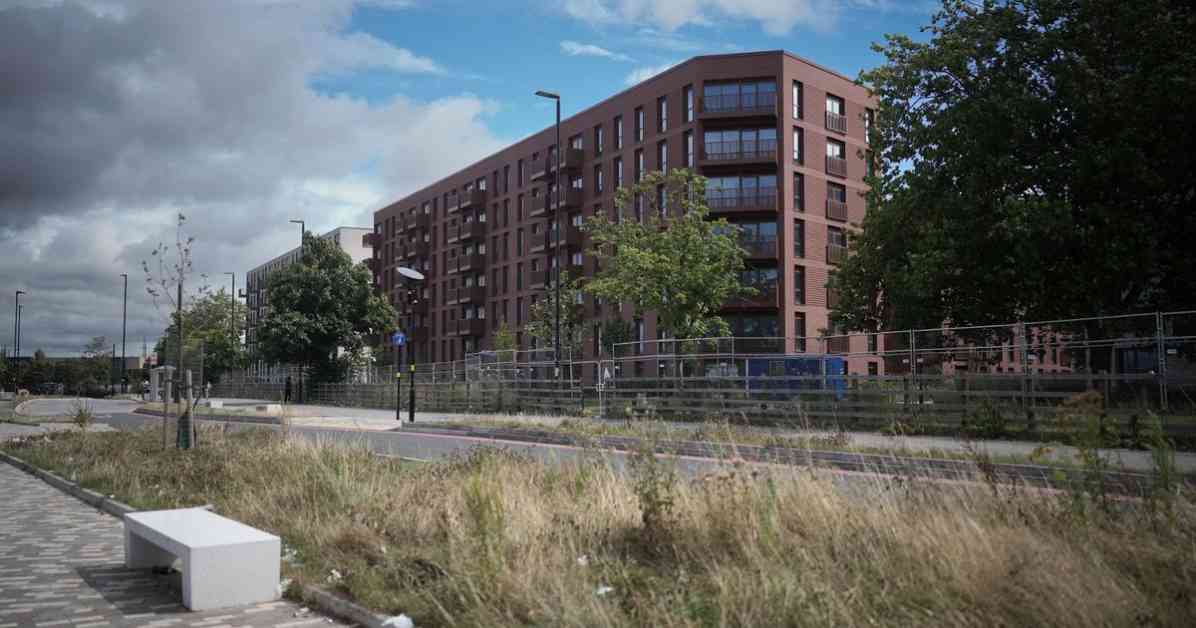Birmingham, the UK’s second-largest city, is facing a concerning issue amidst a nationwide housing crisis – an alarming number of empty homes. Recent research has revealed that Birmingham has the highest number of empty properties in the country, with a total of 6,402 homes sitting vacant. This stark reality is even more troubling when considering the city’s growing homelessness crisis, where thousands of individuals and families are in desperate need of stable housing.
Architects Reveal conducted a study that analyzed local authority council tax data to identify properties that have been empty for more than six months. The findings showed that Birmingham topped the list for the highest number of empty homes in England, followed by Liverpool and Durham. Across the country, there are a staggering 269,395 properties that have been registered as empty for an extended period, highlighting a widespread issue that demands urgent attention.
The housing crisis in Birmingham has reached a critical point, with thousands of people languishing on the council’s housing register for years, waiting for a place to call home. David Weaver, from Reveal, expressed shock at the fact that approximately one percent of homes in England have been left empty for six months or more. In light of the 270,000 individuals currently experiencing homelessness in the country, the prevalence of vacant properties is deemed unacceptable.
Weaver emphasized the necessity for local authorities to be empowered with resources to address the problem of empty homes effectively. This could involve supporting property owners in renovating their vacant properties for rental or sale, as well as investing in initiatives like London’s Council Homes Acquisition Programme, which enables councils to acquire private properties for use as social housing. By exploring various avenues to tackle the housing crisis, we can ensure that everyone has access to safe and affordable housing.
In Birmingham alone, there are 23,000 households on the waiting list for social housing, underscoring the urgent need for action. Despite the pressing demand for housing, a significant amount of properties across the country remain empty, with an estimated value of £212 billion. The situation is particularly glaring in Birmingham’s Commonwealth Games athletes’ village, which has remained unoccupied for over a year since its completion. Plans to sell these homes at a cost exceeding £300 million have raised concerns about the effective use of public resources.
Neighboring Wolverhampton has taken proactive measures to address its housing shortage by implementing a council tax hike on empty and second homes. Previously, the penalty for leaving homes vacant for more than two years has now been extended to properties empty for one to five years, resulting in a doubling of council tax. For homes that remain vacant between five and ten years, the tax will be tripled, incentivizing property owners to either occupy or make their homes available for rent.
The Impact of Empty Homes on Communities
The presence of a large number of empty homes not only exacerbates the housing crisis but also has broader implications for communities. Vacant properties can attract vandalism, squatting, and anti-social behavior, leading to a decline in the overall safety and livability of neighborhoods. Moreover, empty homes contribute to a sense of neglect and disrepair, affecting the aesthetic appeal and property values of surrounding areas. By addressing the issue of empty homes, local authorities can revitalize neighborhoods, enhance community cohesion, and create opportunities for affordable housing solutions.
The Role of Government and Stakeholders
Government intervention and collaboration with stakeholders are crucial in addressing the challenges posed by empty homes. Policymakers need to implement effective strategies to incentivize property owners to bring their vacant homes back into use. This could involve offering tax breaks, grants, or loans for renovation projects, as well as streamlining the process for converting empty properties into affordable housing units. By working closely with housing associations, developers, and community organizations, the government can facilitate the repurposing of empty homes to meet the diverse housing needs of the population.
Community-Led Solutions and Support Mechanisms
Community-led initiatives play a vital role in identifying and repurposing empty homes to benefit local residents. Collaborative efforts between residents, local authorities, and housing associations can lead to innovative solutions for revitalizing vacant properties and creating sustainable housing options. Community land trusts, co-housing projects, and self-build schemes are examples of initiatives that empower communities to take ownership of their housing needs and address the shortage of affordable homes. By fostering a sense of ownership and participation, these grassroots initiatives can drive positive change and promote inclusive and resilient communities.
In conclusion, the prevalence of empty homes in Birmingham and across the UK highlights the urgent need for comprehensive action to address the housing crisis. By investing in strategies to bring vacant properties back into use, supporting community-led initiatives, and engaging with stakeholders, we can create a more equitable and sustainable housing system. It is imperative that all levels of government, along with private sector partners and community organizations, collaborate effectively to ensure that everyone has access to safe, affordable, and dignified housing. Only through collective efforts and innovative solutions can we build a future where every individual and family has a place to call home.



























